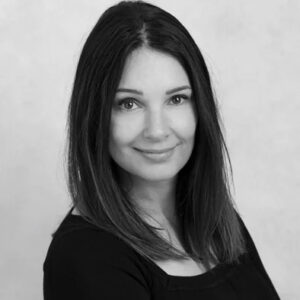We chat with the refreshingly candid and super-talented specialist plastic surgeon Dr Lisa Friederich about her unique approach to plastic surgery, her most life-changing procedures, and how she is bridging the gender gap in a male-dominated industry.
Q/ What made you decide to pursue a career in medicine, and then specifically plastic surgery?
I was always fascinated by medical shows on TV, but never realistically thought of following a medical career path. Like many kids, I wanted to be an astronaut! My mother wasn’t as supportive as she might have been either, telling me I should just get a “regular” job. Hopefully this doesn’t happen to young women as much as it did when I was a teen. It was actually the birth of my daughter that prompted my inner call for action to pursue a career in medicine.
I completed most of my training in Perth, which included undergrad medicine at UWA, my internship and early resident years at Sir Charles Gairdner Hospital before entering into Advanced Surgical Training in Plastic and Reconstructive Surgery. I moved to Sydney in mid 2012 and completed specialty training here, mostly at Royal North Shore Hospital.
During my medical training I was allocated to plastic surgery. This was eye-opening – it was such a diverse caseload and allowed for finesse and creative input. I knew early on in my medical studies that I wanted to pursue a surgical specialty, not just because one could work with their hands, but the approach was to define the patient’s problem and then ‘fix’ it. Plastic surgery really appealed to my artistic and creative side and no other surgical specialty could match that.
Before commencing medical studies, I studied Art and Photography (ed’s note: she’s even had her work exhibited in the Art Gallery of Western Australia!). My appreciation and understanding of art and aesthetics are invaluable in plastic surgery.
Q/ As a female plastic surgeon in a male-dominated field, what are some of benefits you can offer your patients?
Empathy is the first thing that comes to mind – being female in a female body, and one that has had a child, I can relate to the specific issues that affect women.
Although there are many amazing male surgeons out there, they can’t know what it is to be a woman. And they certainly aren’t always the best judges of what suits and balances a woman’s body. I had a patient who’d had a breast reduction with a male surgeon. She wanted to go as small as possible, the surgeon said yes of course, but balanced. Six months post surgery, she still fits into the same cup size bra and still has all of the same problems she did before. He reduced her and told her they were the right size for her body and gave her a list of reasons she couldn’t be reduced any further. There certainly is a limit in how much breast tissue can be removed for safety and shape, but none of this was applicable in her case.
Q/ What’s your personal approach to plastic surgery?
I always consider how I would feel in a consultation – it takes a lot of courage for any patient to present themselves to a doctor, a total stranger. They are vulnerable and often literally naked, so being mindful to treat patients like people in our interactions and recommendations is essential. It is possible to talk objectively about body parts, but with respect and remembering that they belong to people.
Q/ What is your goal in every procedure you perform?
It starts with clear communication about expectations and procedure particulars to ensure the patient and I are on the same page. Good planning and good surgical technique are then key to delivering the best outcome possible.
Q/ What are the most common surgeries you perform?
The majority of my cases are breast and body surgery – breast revision surgery, reductions and lifts, tummy tucks, liposuction and labiaplasties. I also perform top surgery for gender affirmation.
Although I do a lot of buccal (cheek) fat pad removal, lip lifts and chin lipo in-office, I do less and less formal facial surgery and concentrate instead on non-surgical options such as skincare, resurfacing and rejuvenation.
Q/ Which surgeries have been most life-transforming for your patients?
Both mummy makeovers and my gender affirmation surgeries make the biggest impact on my patients’ lives.
So many of the mums that come to see me love their kids but have been left with ravaged bodies. They lose their old bodies and some sense of their old self too, which bothers them every day – whether in front of a mirror (if they can bear to look), wearing clothes or going out. Despite this, they feel if they seek surgery they are vain or lazy – in part by the judgements and societal pressures to do it “naturally”.
It is expensive surgery too, and out of the grasp of many women. Medicare and private health insurance won’t cover surgery to repair the effects of pregnancy. It will cover massive weight loss surgery, however, and this is applicable in some cases. This in itself shows the bias against women and the way their bodies change after pregnancy. Perhaps it would be different if men could also become pregnant?
Q/ What are you most proud of, and most excited about for the future of your practice?
It takes a few years to settle into practice and find your niche. It is hard starting out, and it can be a cut-throat industry. For us it has been amazing to finally have our own space, and I think it helps patients to get a feel for the type of practice and doctor they choose. I feel we’ve finally climbed the hill and can now look out at the wonderful vista of possibilities.[A]A
More info
Dr Lisa Friederich MBBS FRACS
75 Crown St, Woolloomooloo, Sydney
1300 DR LISA
drlisa.com.au












